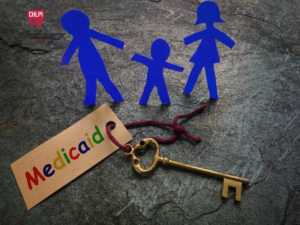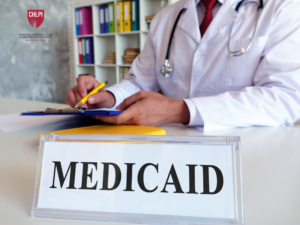Originally published on April 8, 2020 by NBC News. Written by April Glaser and Jon Schuppe.
In a growing number of cities and states, local governments are collecting the addresses of people who test positive for the coronavirus and sharing the lists with police and first responders.
Law enforcement officials say this information sharing — which is underway in Massachusetts, Alabama and Florida, and in select areas of North Carolina — will help keep officers and EMTs safe as they respond to calls at the homes of people who have been infected. The first responders can take additional precautions in those cases to avoid being exposed to the virus, state health departments and local police officials say.
But some public health experts and privacy advocates have raised concerns about police departments maintaining a list of addresses of confirmed coronavirus cases. They say that it could make people reluctant to seek medical care or get tested for COVID-19, the disease caused by the coronavirus, because of a fear of profiling by law enforcement.
“With any infectious disease, there’s going to be stigma and discrimination about who has it,” Robert Greenwald, a professor and the director of the Center for Health Law and Policy Innovation at Harvard Law School, said. “If you’re in a situation now where the word starts to get out that if you get screened then your address goes on a list that goes to first responders, it discourages screening for people who don’t want to be on this list.”
Greenwald and three other public health experts also questioned the usefulness of a list of addresses with confirmed cases, noting that since the coronavirus has spread so widely, first responders ought to assume anyone they encounter could be infected.
Still, police officials and officers said this information is a helpful reminder to exercise extra caution in the field, beyond the usual safety measures.
Officers who are dispatched to an address where someone has tested positive can prepare by donning full protective gear, said Assistant Chief Brian Long of the Burlington, North Carolina, police department, where the local health department is sharing addresses of positive tests. For calls where the risk is less clear, such as when the caller indicates that someone at the home is ill, officers use their own judgment, based on the urgency of the call, on what precautions to take.
“Here in Burlington, we only have about 139 cops, so we can’t afford to have a significant drop in personnel,” Long said. “We have to be able to maintain public safety. That is a primary concern for us as a department — managing the health of our organization so that we’re there and ready to go.”
How address sharing works
On March 18, Gov. Charlie Baker signed an executive order making Massachusetts the first state to direct local boards of health to share the addresses of people who have tested positive for the coronavirus with police and paramedics. The names of those who tested positive are omitted from the shared data.
Scott Hovsepian, a police officer in Waltham, Massachusetts, and the president of the Massachusetts Coalition of Police, a union, said he appreciates the information sharing. “The health department is getting the information from health care providers, and what they’re providing our chief dispatcher with is the addresses.”
“All it says there is a confirmed case at this address — it’s just the address,” Hovsepian explained, adding that in some agencies those addresses are given to police officers during roll call as they go out to their shifts.
Police across the country already collect as much information as possible from 911 callers to protect officers from potential exposure to the coronavirus. Many agencies have instructed 911 dispatchers to ask callers a series of questions to help determine if police, firefighters or paramedics who arrive might be exposed, according to interviews with police and surveys conducted by the Police Executive Research Forum, which is helping law enforcement share information on how to respond to the pandemic.
Those questions, which vary from agency to agency, include asking whether anyone in the caller’s household has tested positive or come into contact with anyone who has been or is under quarantine, is exhibiting symptoms of the coronavirus or has traveled recently. If the responses indicate a risk, police may be instructed to take a report by phone (in the case of nonemergencies), wear protective equipment or meet the complainants outside.
Some agencies have gone further, asking — or demanding — local health authorities to share addresses of people who have tested positive or are in quarantine, even in cases where there’s no statewide directive calling for information sharing. Those addresses are then entered into the Computer Aided Dispatch system, where they pop up if someone calls 911 from one of the listed addresses.
Mike Chitwood, the sheriff of Volusia County, Florida, said he had to browbeat his local health department, in Facebook posts and interviews with the local press, to give his agency addresses of people who had tested positive. The updated lists are sent to his agency nightly.
“I told them they’re endangering the lives of first responders,” Chitwood recalled. “We’re not asking for names and we’re not putting signs on front yards, and we’re not publishing a list, but it’s important for our deputies to know if they’re responding to a call from someone who has been quarantined.”
He added: “This is a no-brainer: If you know someone who may have a deadly disease, why would you not avail first responders to the information?”
On Tuesday, Florida’s State Emergency Operations Center said that the addresses of people who had tested positive were now being shared with first responders statewide.
In other cities and counties, police chiefs and sheriffs said that they’re desperate to get the addresses of people who have tested or who have been exposed.
Jennifer Tejada, the police chief in Emeryville, California, in the Bay Area, said she has been unable to get such information from her local health department. “It unnecessarily puts first responders at risk,” she said in an interview. “Relying on callers to self-report shows how police have been left to navigate the virus on their own.”
Rather than relying on data, “we’re relying on the good nature of humans,” she said.
The Alameda County Public Health Department, which oversees Emeryville, disagrees that the information would be useful.
“Since COVID-19 is widely spread in our community, we worry that disclosure of the names and addresses of known COVID-19 cases would provide first responders with an incorrect assessment of where the risk lies and actually lead to reduced safety for our first responders,” Neetu Balram, a spokeswoman for the department, said in an email.
The need for protective gear
Not all first responders who are receiving addresses of COVID-19 patients are government workers. Across the country, it’s common for ambulance services to be outsourced to vendors. Arrol Sheehan, a spokeswoman for the Alabama Department of Public Health, said in an email that the addresses of people who test positive for COVID-19 are landing in the hands of private companies that provide first responder services.
The purpose of the address sharing in Alabama is to protect first responders, she added, stressing that only addresses are shared, not names.
But civil liberties advocates have raised concerns about health departments sharing these addresses — whether it’s with police, paramedics or private companies.
“It’s not clear how this information sharing is taking place, or what precautions the government is using to share the sensitive data,” Carol Rose, the executive director of the American Civil Liberties Union of Massachusetts, said in an email.
“Who is in charge of making sure the information isn’t being misused or abused? How many people can access the data, and who is providing oversight of that access? Who will be responsible for ensuring the information is safely deleted once the order is rescinded? Even in a public health emergency, the government must make every effort to protect the rights of people experiencing illness or at risk of illness.”
The ACLU of Massachusetts is concerned that police officers could cross reference addresses with other databases. And if there’s only one person at an address, matching the address with a name becomes much easier.
The sharing of addresses of people who have tested positive for COVID-19 isn’t a violation of medical privacy laws, according to guidance issued by the Civil Rights Office of the U.S. Department of Health and Human Services.
Still, just because a practice isn’t illegal doesn’t mean it’s accepted as sound public health policy. Public health experts have questioned the value of the address lists, since infected people may be asymptomatic or not realize that they’ve been exposed.
“You might as well give first responders the telephone book,” said Greenwald, the health policy professor, who wrote an open letter last month to Baker opposing his executive order for Massachusetts.
He and others are concerned that first responders might be less vigilant — or might not be given protective gear — when going to homes that have not been flagged for coronavirus cases.
“I’m worried that sharing this information is giving EMS companies the OK to have employees go into spaces without full protection,” Dr. Rohini Haar, an emergency room physician and lecturer in epidemiology at the University of California, Berkeley, said.
In Alabama, where the state’s health department has said information sharing is allowed, some cities, including Huntsville, have chosen not to give the list of addresses to first responders.
“Their policy is to use safety precautions,” said Kelly Schrimsher, a Huntsville city spokeswoman, “and assume everyone they come in contact with may have the virus.”


